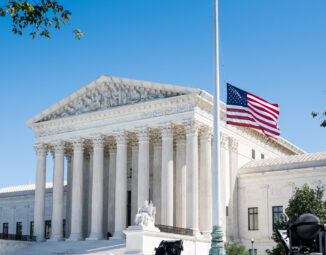New Year, New (Employment) Laws: A National and Regional Outlook for 2019
Each New Year brings new laws, including employment laws and regulations that companies need to consider before the ball drops. In 2019, employers may see a few changes at the federal level, but most changes will be at the state and local level – a continuation of a recent trend. Here is a summary of new developments, both nationally and in the northeast.
National Outlook: A Chance of Employer-Friendly Developments
While 2019 is not expected to bring any new national employment laws, there are two potential developments at the administrative level that may impact employers across the country:
1) New NLRB “Joint Employment” Rule
As previously covered by HR Legalist, the National Labor Relations Board has been developing a new joint employment rule that is expected to be much for favorable for employers than the Obama-era Browning-Ferris standard. The comment period for the proposed rule was recently extended to January 14, 2019, so we expect to learn more about the new rule in 2019.
2) Federal Wage and Hour and Overtime Update
Beginning on January 1, 2019, federal contractors must pay covered workers at least $10.60 per hour (an increase from $10.35 per hour in 2018). In 2019, tipped employees being paid in connection with a federal contract must be paid at least $7.40 per hour (an increase from $7.25 per hour).
The national minimum wage for private employers remains $7.25 per hour and is expected to remain there in 2019. However, the New Year could bring more information about a long-anticipated change to the salary threshold for overtime pay. The Department of Labor is expected to issue a Notice of Proposed Rulemaking in January of 2019, further detailing the new proposal.
Regional Outlook: New Employee-Friendly Laws on the Way
1) New York: Minimum Wage, Sexual Harassment and “Call-In” Pay
On December 31, 2018, New York’s statewide minimum wage will increase to $11.10 per hour, and New York City’s minimum wage will increase to $15.00 per hour (for employers with more than 10 employees) and $13.50 per hour (for employers with 10 or fewer employees).
As previously covered by HR Legalist, New York State now requires employers to implement sexual harassment policies and training sessions that meet very specific requirements. The policy requirements already went into effect in October of 2018, but the new training requirements will go into effect on October 9, 2019.
Employers in New York City have an even shorter turnaround to get ready for the annual anti-sexual harassment training requirements of NYC’s Stop Sexual Harassment Act. Effective April 1, 2019, employers with 15 or more employees must conduct annual trainings which include certain mandatory information, maintain training records, and post certain notices.
Last but not least, the New York Department of Labor recently issued a proposed rule that would require employers to provide “call-in pay” under certain circumstances, such as when employees are required to be available to report to work for any shift. The proposed rule is currently in a 30-day comment period.
2) New Jersey: Minimum Wage, Paid Leave, Marijuana and More
On January 1, 2019, New Jersey’s minimum wage will increase to $8.85 per hour (an increase from $8.60 per hour in 2018). Meanwhile, on December 6, 2018, a new bill to gradually increase the minimum wage to $15 per hour was introduced. While prior similar bills have failed, employers should keep an eye on this newest measure because Governor Murphy has expressed support for a $15 minimum.
A number of other employee-friendly bills are making their way through the New Jersey legislature. A pending bill would increase the amount of paid employee leave under New Jersey’s Family Leave Insurance program from 6 weeks to 12 weeks, and would also expand intermittent leave. While the program would continue to be funded by employee contributions, the bill would require all business with 30 or more employees to restore employees to their prior job after leave, and would prohibit discrimination or retaliation against employees who take leave.
On November 26, 2018, New Jersey’s recreational marijuana bill cleared committee. The bill currently states that employers need not accommodate marijuana use, possession, or being under the influence in the workplace, but would also prohibit some employers from refusing to employ or penalizing employees solely for failing a drug test. If this bill passes in its current form, it could impact pre-employment drug testing.
Finally, as recently covered by HR Legalist, another pending bill could limit the scope of restrictive covenants.
3) Pennsylvania: Local Developments in Wages, Scheduling and Sick Leave
While the Pennsylvania legislature has not made any notable statewide employment law changes, Philadelphia has been more active.
Starting in July 2019, the minimum wage for Philadelphia employees, contractors and subcontractors will increase from $12.20 to $13.25. This minimum will further increase to $13.75, $14.25, and $15.00 in July 2020, 2021, and 2022, respectively.
As recently reported by HR Legalist, the Philadelphia City Council passed a Fair Workweek Employment Standards Ordinance, which applies to retail, hospitality, and food service employers with 250 or more employees and 30 or more locations. Mayor Jim Kenney recently signed the ordinance, but it will not take effect until January 2020.
On the other side of the state, the Pennsylvania Supreme Court heard arguments in October regarding whether or not Pittsburgh can enact a mandatory paid sick leave ordinance. A ruling on this case is expected in 2019.
4) Delaware: Expanded Sexual Harassment Training and Protections
On January 1, 2019, Delaware employers with 50 or more employees will have one year (or until January 1, 2020) to provide interactive sexual harassment training and education to existing employees, pursuant to a new law passed in August of 2018. Newly hired employees must receive this training and education within one year of hire as well. Existing and newly hired supervisors will have to receive additional interactive training during this same timeframe.
Similar to the incoming training and education requirements for covered employers in New York, harassment training in Delaware must include certain elements, such as the definition of sexual harassment and how employees can report violations. The new law applies to employers with at least four employees at the time of the alleged violation.
5) Connecticut: Salary Inquiry Bans
Effective January 1, 2019, Connecticut will become the sixth state to forbid employers from asking job applicants about their salary histories, with an aim toward closing the gender pay gap. The law, which was passed in May of 2018 and is entitled “An Act Concerning Pay Equity” prohibits employers from asking applicants about salary and wage payment histories at any point during the hiring process. However, applicants may choose to volunteer this information. There is a carve-out for employers to ask general questions regarding the existence of equity incentive pay, such as stock options, but they cannot ask specific questions regarding the value of these benefits.
The information contained in this publication should not be construed as legal advice, is not a substitute for legal counsel, and should not be relied on as such. For legal advice or answers to specific questions, please contact one of our attorneys.





